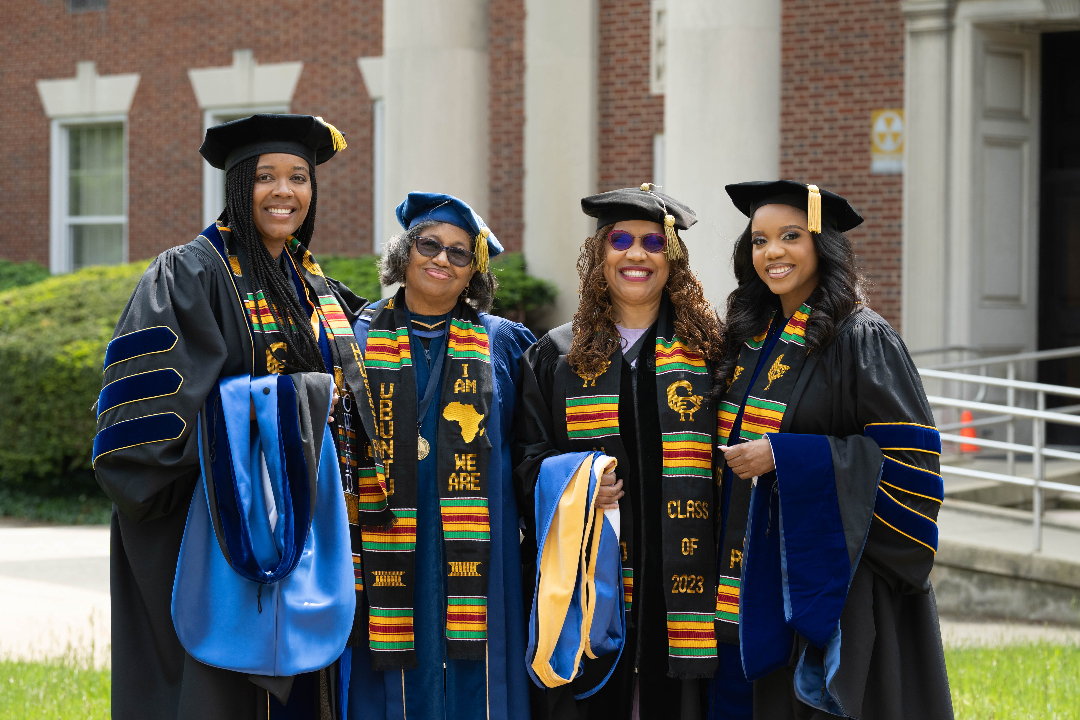Ph.D. Course Info

All courses are not offered every semester or every year. Students will receive a schedule each semester that identifies the course offerings.
Students are also able to satisfy social work electives through taking approve courses in other graduate programs on campus and through the consortium.
A growing number of courses are offered online or as a hybrid courses (sessions online with some in class sessions). Blackboard is used to support online, hybrid and many in class courses.
SWPH 407. History and Philosophy of Social Welfare, 3 credits
Examines the development of social welfare in the United States, including the evolution of social welfare from the Colonial Period to the present and its social, historical and economic impact. Examines the factors that contribute to the knowledge base, practice models and social contexts. Considers a welfare system's relevance to a modern industrial society with highlights on the contributions of African-Americans and women.
SWPH 500. Overview of Research Methodology, 3 credits
Reviews the fundamentals of scientific methods. Familiarizes students with quantitative and qualitative research methods; research design and measurement; instrument development, validity and reliability; principles and types of sampling; essentials of program evaluation; demographic and secondary data analysis; and practicum in survey research.
SWPH 501. Quantitative Methods
This is the first of two required courses on statistical methods for social work doctoral students. The course examines several content areas related to quantitative data analysis. These include (a) Basic research and methodological terms; (b) Working with SPSS software; (c) Descriptive statistics; (d) Normal and skewed distributions; (e) Steps in hypothesis testing; (f) Inferential statistics including parametric and non-parametric tests; (h) Bivariate statistical tests; and (i) presentation, interpretation, and reporting of statistical findings.
SWPH 503. Applied Methodology
This is the second required course on statistics for doctoral students. It builds on Quantitative Methods. It furthers students’ acquaintance with social work and social sciences statistical techniques and provides additional analytical skills necessary to assess the validity of the research literature. The course examines several content areas related to advanced statistics including (a) sample power and sample size; (b) simple, multiple, and logistic regression analyses, (c) two-way analysis of variance and covariance, (d) repeated measures analysis of variance, (e) multivariate analysis of variance and covariance and; (f) canonical correlation analysis.
SWPH 506. Research Design, 3 credits
Enables students to develop skills in designing and implementing research projects on problems and issues related to social work. Students will design a research project and select statistical procedures appropriate for the design. The resulting research proposal will address social work, theoretical and practice issues in the student's special area of interest, usually related, but not limited, to people of color.
SWPH 603. Proseminar: Individuals, 3 credits
Focuses on theories and conceptual approaches used as the knowledge base for social work practice with individuals. Theories covered draw from biological, psychological, sociological, and cultural perspectives. Emphasis given to enhancing the student's reasoning repertoire with respect to articulating a rationale for selecting a theoretical perspective for a social work purpose. Critical variables related to social work theory identified, assumptions assessed, values examined, and empirical evidence analyzed. With an interest in developing the theoretical knowledge base of social work practice with individuals, especially people of color, emphasis is placed on integrating selected and related constructs, e.g., empowerment and world views, into theory and knowledge for ethnically sensitive and culturally competent practice.
SWPH 604: Proseminar: Small Groups
This seminar focuses on the theories, conceptual approaches, and methodologies that form the knowledge base of social work practice with groups. Emphasis is placed on the significant social science theories and models, such as, group dynamics, role and system theory, social group work theories, and organizational development that underpin the state of the practice art. Concepts of leadership and followership and the impact on group processes will be explored from an applied perspective.
SWPH 605. Proseminar: Communities and Organizations, 3 credits
Examines communities and organizations as a level of intervention for solving social problems, with emphasis on analyses of existing theory, research, and models. Special attention paid to issues of concern to African Americans. Implications for other minorities and for women also examined.
SWPH 606. Proseminar: Social Work Education, 3 credits
Introduces students to contemporary features of American social work education. Special emphasis given to Black perspectives in social work education. Attention provided to women's issues and issues relevant to other diverse and frequently oppressed populations. Includes the structure of the educational system, aspects of the learning-teaching process, issues of curriculum and accreditation, recent research about social work education, and the place of social work education in higher education.
SWPH 700. Independent Study I, 1 credit
Study under guidance of a faculty member with special competence in an area.
SWPH 701. Independent Study II, 2 credits
Study under guidance of a faculty member with special competence in an area.
SWPH 702. Independent Study III, 3 credits
Study under guidance of a faculty member with special competence in an area.
SWPH 807, 1-3 credits
Extended, written and approved treatment of subject submitted for doctorate degree.
